About the conference
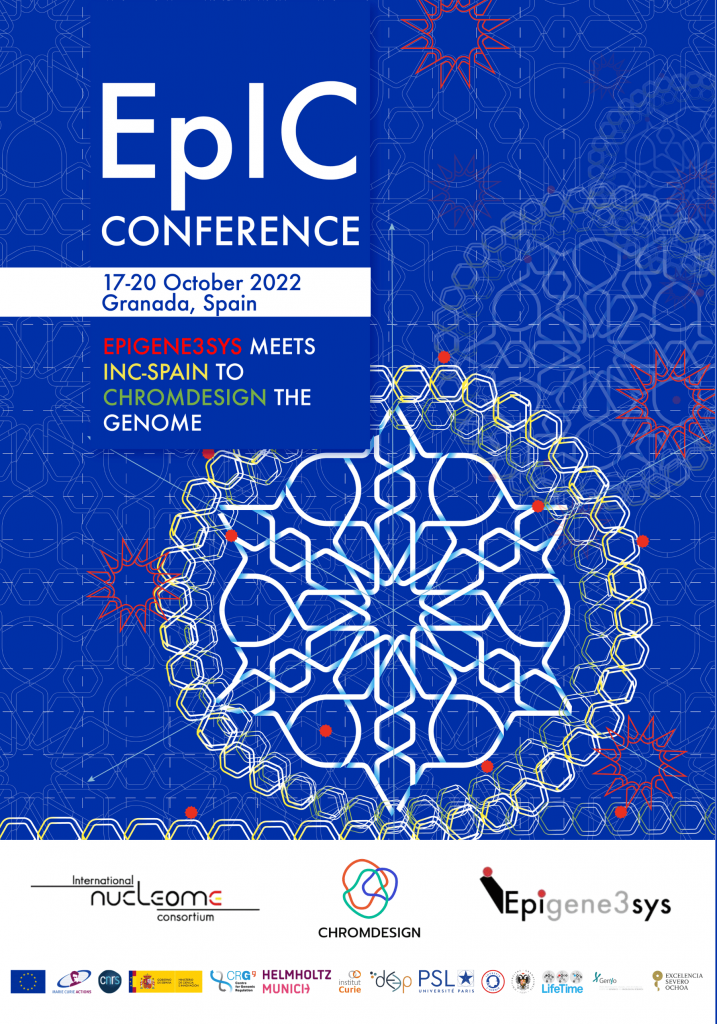
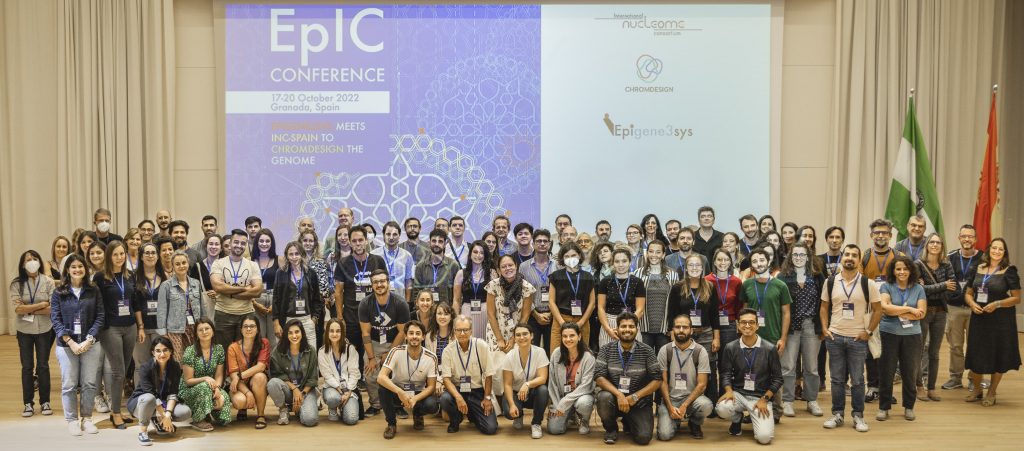
Why EpIC?
EpiGene3Sys meets INC-Spain to ChromDesign the Genome, or just EpIC:
The EpIC Conference is a joint effort of three networks of epigenetics researchers based in Spain, France, and Germany, to create a space for a scientific discussion about our latest discoveries on how epigenetics and genome organisation impact gene regulation and cellular trajectories during development, differentiation, and disease. Notwithstanding, we don’t want to stop there and we would also like to use this opportunity to highlight the intersection between science, communication, art, and design.
We are convinced that science is the backbone of many different areas, and multidisciplinarity is a main characteristic that projects and experiments nourish to new and necessary places. Thus we wanted to organize a conference that this view, and that all of these areas can (and should) actually co-localize to the nucleus of our scientific questions.
In the spirit of EpiGene3Sys, ChromDesign, and INC-Spain, the conference aims to cover a wide variety of topics such as epigenetics in physiology, molecular biology, transcription, epigenetic inheritance, evolution, development, and disease; genome architecture, cutting-edge technologies, and data representation that intersects biology with design.
We received a total of 62 abstracts and we counted with 31 oral presentations, 27 poster presentations, and flash talks.
In line with the core aims of these three networks, we support the scientific development and career evolution of researchers and the conference will highlight their research discoveries. We prioritised the selection of abstracts from PhD students, postdoctoral fellows and young team leaders. To allow the participation of everyone, the conference is being held in a hybrid format.
The EpIC Conference scientific sessions are divided into 4 main sessions, each of them dedicated to one of the major topics of interest in our networks: Genome Organization, Epigenetics & Disease, Epigenetics & Development, and Chromatin Regulation. In addition, the programme of speakers is completed with an Open Session, where we have the opportunity to include oral presentations without the limitation of a
major topic.
On top of that, and to complement the scientific programme, we organized a series of special talks with transversal topics, workshops and a poster session combined with a science-inspired art exhibition.
The organizing networks:
CHROMDESIGN
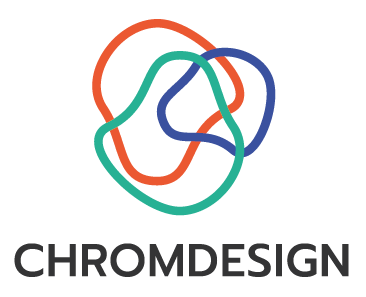 ChromDesign aims to train and connect the next generation of researchers of chromatin biology, aiming to understand genome organisation in 3D space and in time in development and disease. The participation of a designer as a member of our network has allowed us to find innovative ways to share our research with the scientific community and the public.
ChromDesign aims to train and connect the next generation of researchers of chromatin biology, aiming to understand genome organisation in 3D space and in time in development and disease. The participation of a designer as a member of our network has allowed us to find innovative ways to share our research with the scientific community and the public.
EpiGene3Sys
After the success of EpiGeneSys and its follow-up EpiGene2Sys, the community is starting a new cycle as EpiGene3Sys. Funded by the CNRS as an International Research Network, EpiGene3Sys gathers a vast community of researchers in Europe with a common interest in the broad field of epigenetics. By combining disciplines and cutting-edge technologies, we aim to understand how the epigenome regulates cellular trajectories in development, differentiation, tissue homeostasis and disease.
INC-Spain:
INC-Spain is the Spanish network of the International Nucleome Consortium funded by the Science Ministry of Spain. The network has the goal of coordinating the efforts of a large number of research groups in Spain interested in 4DNucleomics sciences. INC-Spain is associated with the INC COST action, which aims to establish a worldwide community of cooperation among multi-disciplinary nucleome scientists to accelerate scientific breakthroughs leading to new concepts, innovative interdisciplinary approaches and realistic applications for health, agriculture, and industry.
Keynote speakers:
Magda Bienko
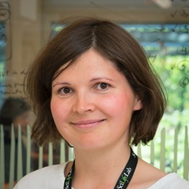
Magda Bienko has her Lab for Quantitative Biology of the Nucleus, where she is Assistant Professor at Karolinska Institutet and Fellow of Science for Life Laboratory Stockholm, Sweden since 2015. She opened her second lab in 2022, at Human Technopole Milan, Italy. Awarded with an ERC Starting Grant she contributed to developing a novel sequencing method for mapping DNA double-strand breaks along the genome (Nature Communications 2017; Nature Protocols 2020) and pioneered the first genome-wide method for profiling radial distances in the nucleus (Nature Biotechnology 2020). She also built open-access resources for high-resolution DNA and RNA fluorescence in situ hybridization (Nature Communications 2019), which is routinely used to study genome organization and gene expression at single-cell resolution. Her research interests are understanding the forces and mechanisms that determine how chromatin is spatially arranged in the nucleus and how disruption of the higher-order chromatin structure contributes to pathogenic processes.
Human Technopole (Milan, Italy)
Department of Genomics &
Karolinska Institutet (Stockolm, Sweden)
Laboratory for Quantitative Biology of the Nucleus
Jane Skok
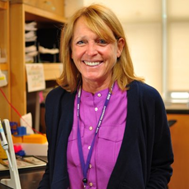
The Skok Lab uses fluorescent in situ hybridization (FISH), live imaging, genome wide chromosome conformation capture (3C) and analytical aspects of chromosome folding with the tools of genetics to understand how higher-order mechanisms help preserve genome integrity and regulate gene expression. Dr Skok’s pioneering work revealed how reversible chromatin interactions contribute to the regulation of antigen receptor gene recombination during lymphocyte development. During the last few years, the lab has focused on understanding how chromatin organization impacts gene regulation through the sharing of regulatory elements, including those that emanate from transposons. The Skoklab is also interested in the question of how alterations in nuclear organization contribute to oncogenic transcriptional programs. One aspect of this is trying to understand the impact of architectural proteins on gene regulation and cancer outcome.
NYU Langone Medical Center
NYU School of Medicine
Yang Shi
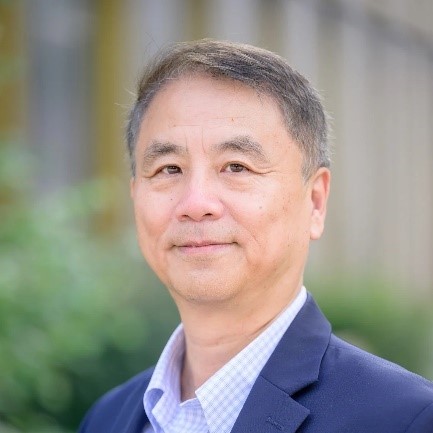
Yang Shi received his PhD from NYU and postdoctoral training at Princeton University where he discovered the transcription factor YY1, which plays a critical role in many important biological processes. He began his independent career at Harvard Medical School where he received tenure and full professorship in the Department of Pathology in 2004. In 2009 he joined Boston Children’s Hospital and held a Merton Bernfield Professorship there. He became the inaugural C. H. Waddington Professor of Pediatrics of Harvard Medical School in 2018. Shi joined the Ludwig Institute for Cancer Research, Oxford University in 2020. His honors include Ray Wu Prize (2009), election to the American Association for the Advancement of Science (2011), American Cancer Society Research Professor (2012), election to the American Academy of Arts and Sciences (2016), the National Cancer Institute Outstanding Investigator Award (2017), election to the AACR Academy (2022) and election to the EMBO membership (2022).
University of Oxford
Ludwig Institute for Cancer Research